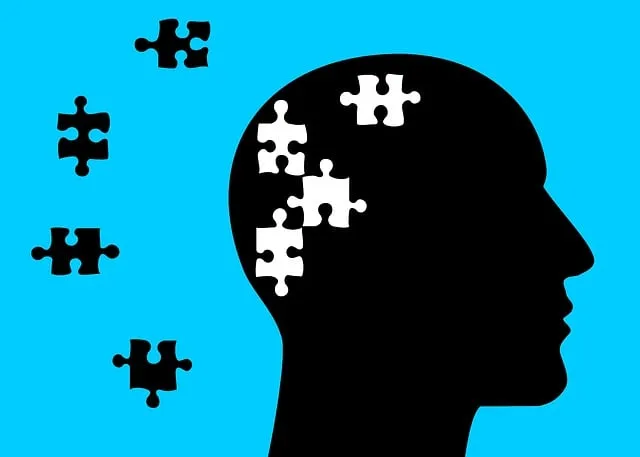Kaiser's inpatient mental health services in Wheat Ridge prioritize stress management through comprehensive programs. They identify and address triggers like workload and emotional demands, teaching powerful emotional healing processes and burnout prevention strategies. Mindfulness meditation, journaling, physical exercise, and Cognitive Behavioral Therapy (CBT) are evidence-based practices integrated into treatment plans. Peer learning in a supportive environment enhances coping skills, fostering resilience for both healthcare professionals and patients. These initiatives promote healthier mental well-being and contribute to improved Mental Health Policy Analysis through public awareness campaigns.
“Stress management techniques are essential tools for maintaining mental well-being, especially in today’s fast-paced world. At Kaiser Inpatient Mental Health Wheat Ridge, we delve into the multifaceted approach to understanding and mitigating stress. This article explores various strategies, from cognitive behavioral therapy (CBT) to relaxation techniques, offering insights into how education equips individuals with powerful tools for long-term mental health. Discover how creating supportive environments fosters peer learning, enabling effective shared strategies.”
- Understanding Stress: Unveiling the Impact and Causes at Kaiser Inpatient Mental Health Wheat Ridge
- The Role of Education: Equipping Individuals with Effective Stress Management Tools
- Techniques for Relaxation: A Comprehensive Guide to Reduce Stress Levels
- Cognitive Behavioral Therapy (CBT): A Powerful Approach for Long-Term Stress Management
- Creating a Supportive Environment: Facilitating Peer Learning and Shared Strategies
Understanding Stress: Unveiling the Impact and Causes at Kaiser Inpatient Mental Health Wheat Ridge

Stress is a pervasive issue that significantly impacts individuals’ mental and physical well-being, especially within demanding professions like healthcare. At Kaiser Inpatient Mental Health Wheat Ridge, understanding stress involves recognizing its diverse causes and effects. Stress can arise from various sources, including heavy workloads, long shifts, and emotional demands, leading to burnout and negatively affecting healthcare providers’ self-esteem and overall mental health.
Through comprehensive programs, Kaiser aims to help professionals navigate these challenges by teaching effective emotional healing processes and burnout prevention strategies. By addressing stress at its core, individuals can enhance their resilience and improve their ability to manage demanding situations, fostering a healthier work environment for both patients and healthcare providers.
The Role of Education: Equipping Individuals with Effective Stress Management Tools

Education plays a pivotal role in equipping individuals with effective stress management tools, particularly in today’s fast-paced world where mental health challenges are on the rise. Programs that integrate compassion cultivation practices into educational curricula can significantly contribute to Anxiety Relief and overall well-being. This approach, as seen in initiatives like those offered by facilities such as Kaiser’s inpatient mental health services in Wheat Ridge, focuses on fostering empathy, self-awareness, and emotional regulation skills.
By incorporating these techniques into the learning environment, schools can empower students with strategies to navigate stress and promote healthier coping mechanisms. Such educational interventions extend beyond the classroom, influencing participants’ ability to advocate for their Mental Health Policy Analysis and Advocacy, ultimately contributing to a more compassionate and resilient society.
Techniques for Relaxation: A Comprehensive Guide to Reduce Stress Levels

Stress management is a vital component of overall mental wellness, and various techniques can help individuals reduce stress levels effectively. At Kaiser’s inpatient mental health facility in Wheat Ridge, patients are introduced to a comprehensive guide for relaxation, offering practical tools to combat daily pressures. One such technique is mindfulness meditation, which encourages focusing on the present moment, thereby calming the mind and reducing anxiety.
Journaling is another powerful method recommended by mental health professionals. By documenting thoughts and experiences in a Mental Wellness Journaling Exercise Guidance notebook, individuals can process emotions, identify stress triggers, and cultivate positive thinking. Regular physical exercise is also integrated into treatment plans as it releases endorphins, promotes better sleep, and provides an outlet for pent-up energy and tension. Through these evidence-based practices, Kaiser’s inpatient program equips individuals with the skills to navigate life’s challenges and enhance their overall Mental Health Awareness.
Cognitive Behavioral Therapy (CBT): A Powerful Approach for Long-Term Stress Management

Cognitive Behavioral Therapy (CBT) is a highly effective approach for managing stress in the long term, and it’s a service offered by mental health institutions like Kaiser’s inpatient facilities in Wheat Ridge. CBT focuses on identifying and challenging negative thought patterns and behaviors that contribute to stress, anxiety, or depression. By modifying these cognitive distortions, individuals can learn healthier coping strategies and improve their emotional well-being. This evidence-based therapy is designed to empower people with the skills needed to navigate stressful situations effectively, making it a valuable tool for promoting mental health and trauma support services.
Incorporating CBT into mental health education programs can equip individuals with practical tools for managing stress throughout their lives. Through structured sessions, participants learn to recognize triggers, reframe negative thoughts, and engage in problem-solving behaviors. This proactive approach not only benefits those struggling with acute stress but also fosters resilience in navigating the challenges of daily life. Additionally, CBT’s focus on individual cognitive processes makes it adaptable for various populations, ensuring tailored support for everyone from students to working professionals.
Creating a Supportive Environment: Facilitating Peer Learning and Shared Strategies

Creating a supportive environment is a cornerstone of effective stress management techniques teaching. In the context of Kaiser’s inpatient mental health services at Wheat Ridge, this means fostering an atmosphere where individuals feel safe to share their experiences and learn from one another. Peer learning becomes a powerful tool when participants can exchange insights, strategies, and coping mechanisms tailored to their unique challenges. This collaborative approach not only enhances understanding but also promotes a sense of community, which is vital for stress reduction and mental well-being.
Encouraging open dialogue and cultural sensitivity in mental healthcare practice further enriches the learning experience. By recognizing and respecting diverse backgrounds, perspectives, and experiences, educators can ensure that stress management techniques are inclusive and effective for all. This personalized approach, combined with shared strategies, can significantly contribute to the development of public awareness campaigns focused on mood management, ultimately benefiting individuals seeking support at Kaiser’s Wheat Ridge facility.
Stress management techniques teaching, as demonstrated by Kaiser’s inpatient mental health services at Wheat Ridge, plays a pivotal role in equipping individuals with the tools needed to navigate life’s challenges. Through comprehensive education and evidence-based approaches like CBT, Kaiser fosters a supportive environment that encourages peer learning and shared strategies. By understanding stress impacts and causes, individuals gain valuable insights to effectively manage their well-being, making it a game-changer for those seeking long-term mental health solutions at Kaiser Inpatient Mental Health Wheat Ridge.






